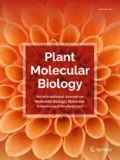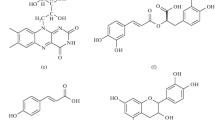Abstract
Bacterial quorum sensing (QS) mechanisms play a crucial role in the proper performance and ecological fitness of bacterial populations. Many key physiological processes are regulated in a QS-dependent manner by auto-inducers, like the N-acyl homoserine lactones (AHLs) in numerous Gram-negative bacteria. In addition, also the interaction between bacteria and eukaryotic hosts can be regulated by AHLs. Those mechanisms gained much attention, because of the positive effects of different AHL molecules on plants. This positive impact ranges from growth promotion to induced resistance and is quite contrasting to the rather negative effects observed in the interactions between bacterial AHL molecules and animals. Only very recently, we began to understand the molecular mechanisms underpinning plant responses to AHL molecules. In this review, we gathered the latest information in this research field. The first part gives an overview of the bacterial aspects of quorum sensing. Later we focus on the impact of AHLs on plant growth and AHL-priming, as one of the most understood phenomena in respect to the inter-kingdom interactions based on AHL-quorum sensing molecules. Finally, we discuss the potential benefits of the understanding of bacteria-plant interaction for the future agricultural applications.


Similar content being viewed by others
References
Bai X, Todd CD, Desikan R, Yang Y, Hu X (2012) N-3-oxo-decanoyl-l-homoserine-lactone activates auxin-induced adventitious root formation via hydrogen peroxide- and nitric oxide-dependent cyclic gmp signaling in mung bean. Plant Physiol 158:725–736. doi:10.1104/pp.111.185769
Beckers GJ, Jaskiewicz M, Liu Y, Underwood WR, He SY, Zhang S, Conrath U (2009) Mitogen-activated protein kinases 3 and 6 are required for full priming of stress responses in Arabidopsis thaliana. Plant Cell 21:944–953. doi:10.1105/tpc.108.062158
Bjarnsholt T et al (2005) Garlic blocks quorum sensing and promotes rapid clearing of pulmonary Pseudomonas aeruginosa infections. Microbiology 151:3873–3880. doi:10.1099/mic.0.27955-0
Buddrus-Schiemann K et al (2014) Analysis of N-acylhomoserine lactone dynamics in continuous cultures of Pseudomonas putida IsoF by use of ELISA and UHPLC/qTOF-MS-derived measurements and mathematical models. Anal Bioanal Chem 406:6373–6383. doi:10.1007/s00216-014-8063-6
Fuqua WC, Winans SC (1994) A LuxR-LuxI type regulatory system activates Agrobacterium Ti plasmid conjugal transfer in the presence of a plant tumor metabolite. J Bacteriol 176:2796–2806
Götz C et al (2007) Uptake, degradation and chiral discrimination of N-acyl-d/l-homoserine lactones by barley (Hordeum vulgare) and yam bean (Pachyrhizus erosus) plants. Anal Bioanal Chem 389:1447–1457. doi:10.1007/s00216-007-1579-2
Götz-Rösch C, Sieper T, Fekete A, Schmitt-Kopplin P, Hartmann A, Schröder P (2015) Influence of bacterial N-acyl-homoserine lactones on growth parameters, pigments, antioxidative capacities and the xenobiotic phase II detoxification enzymes in barley and yam bean. Front Plant Sci 6:205. doi:10.3389/fpls.2015.00205
Hartmann A, Schikora A (2012) Quorum sensing of bacteria and trans-kingdom interactions of N-acyl homoserine lactones with eukaryotes. J Chem Ecol 38:704–713. doi:10.1007/s10886-012-0141-7
Hartmann A et al (2004) N-acyl homoserine lactones of rhizosphere bacteria trigger systemic resistance in tomato plants. In: Lugtenberg B, Tikhonovich I, Provorov N (eds) 11th International congress on molecular plant-microbe interactions, St. Petersburg, Russia, 2004. Biology of plant–microbe interactions. APS Press, St. Paul, MI, pp 554–556
Hartmann A, Rothballer M, Hense BA, Schröder P (2014) Bacterial quorum sensing compounds are important modulators of microbe–plant interactions. Front Plant Sci 5:131
Heidel A, Barazani O, Baldwin I (2010) Interaction between herbivore defense and microbial signaling: bacterial quorum-sensing compounds weaken JA-mediated herbivore resistance in Nicotiana attenuata. Chemoecology 20:149–154. doi:10.1007/s00049-009-0031-9
Hense BA, Schuster M (2015) Core principles of bacterial autoinducer systems. Microbiol Mol Biol Rev 79:153–169. doi:10.1128/MMBR.00024-14
Hense BA, Kuttler C, Mueller J, Rothballer M, Hartmann A, Kreft JU (2007) Opinion—Does efficiency sensing unify diffusion and quorum sensing? Nat Rev Microbiol 5:230–239. doi:10.1038/Nrmicro1600
Hernández-Reyes C, Schenk ST, Neumann C, Kogel KH, Schikora A (2014) N-acyl-homoserine lactones-producing bacteria protect plants against plant and human pathogens. Microb Biotechnol. doi:10.1111/1751-7915.12177
Holm A, Vikström E (2014) Quorum sensing communication between bacteria and human cells: signals, targets, and functions. Front Plant Sci 5:309. doi:10.3389/fpls.2014.00309
Jakobsen TH et al (2012) Food as a source for quorum sensing inhibitors: iberin from horseradish revealed as a quorum sensing inhibitor of Pseudomonas aeruginosa. Appl Environ Microbiol 78:2410–2421. doi:10.1128/AEM.05992-11
Jakobsen TH, Bjarnsholt T, Jensen PO, Givskov M, Hoiby N (2013) Targeting quorum sensing in Pseudomonas aeruginosa biofilms: current and emerging inhibitors. Future Microbiol 8:901–921. doi:10.2217/fmb.13.57
Jaskiewicz M, Conrath U, Peterhansel C (2011) Chromatin modification acts as a memory for systemic acquired resistance in the plant stress response. EMBO Rep 12:50–55. doi:10.1038/embor.2010.186
Jin G et al (2012) Two G-protein-coupled-receptor candidates, Cand2 and Cand7, are involved in Arabidopsis root growth mediated by the bacterial quorum-sensing signals N-acyl-homoserine lactones. Biochem Biophys Res Commun 417:991–995. doi:10.1016/j.bbrc.2011.12.066
Jung HW, Tschaplinski TJ, Wang L, Glazebrook J, Greenberg JT (2009) Priming in systemic plant immunity. Science 324:89–91. doi:10.1126/science.1170025
Karlsson T, Turkina MV, Yakymenko O, Magnusson KE, Vikstrom E (2012) The Pseudomonas aeruginosa N-acylhomoserine lactone quorum sensing molecules target IQGAP1 and modulate epithelial cell migration. PLoS Pathog 8:e1002953. doi:10.1371/journal.ppat.1002953
Kusari P, Kusari S, Spiteller M, Kayser O (2015) Implications of endophyte-plant crosstalk in light of quorum responses for plant biotechnology. Appl Microbiol Biotechnol 99:5383–5390
LaSarre B, Federle MJ (2013) Exploiting quorum sensing to confuse bacterial pathogens. Microbiol Mol Biol Rev 77:73–111. doi:10.1128/MMBR.00046-12
Lin D, Grossfield A (2015) Thermodynamics of micelle formation and membrane fusion modulate antimicrobial lipopeptide activity. Biophys J 109:750–759. doi:10.1016/j.bpj.2015.07.011
Liu F, Bian Z, Jia Z, Zhao Q, Song S (2012) The GCR1 and GPA1 participate in promotion of Arabidopsis primary root elongation induced by N-acyl-homoserine lactones, the bacterial quorum-sensing signals. Mol Plant Microbe Interact 25:677–683. doi:10.1094/MPMI-10-11-0274
Luna E, Bruce TJ, Roberts MR, Flors V, Ton J (2012) Next-generation systemic acquired resistance. Plant Physiol 158:844–853. doi:10.1104/pp.111.187468
Mathesius U, Mulders S, Gao M, Teplitski M, Caetano-Anolles G, Rolfe BG, Bauer WD (2003) Extensive and specific responses of a eukaryote to bacterial quorum-sensing signals. Proc Natl Acad Sci USA 100:1444–1449. doi:10.1073/pnas.262672599
Miao C, Liu F, Zhao Q, Jia Z, Song S (2012) A proteomic analysis of Arabidopsis thaliana seedling responses to 3-oxo-octanoyl-homoserine lactone, a bacterial quorum-sensing signal. Biochem Biophys Res Commun 427:293–298. doi:10.1016/j.bbrc.2012.09.044
Montillet JL et al (2013) An abscisic acid-independent oxylipin pathway controls stomatal closure and immune defense in Arabidopsis. PLoS Biol. doi:10.1371/Journal.Pbio.513
Mueller S, Hilbert B, Dueckershoff K, Roitsch T, Krischke M, Mueller MJ, Berger S (2008) General detoxification and stress responses are mediated by oxidized lipids through TGA transcription factors in Arabidopsis. Plant Cell 20:768–785. doi:10.1105/Tpc.107.054809
Navarova H, Bernsdorff F, Doring AC, Zeier J (2012) Pipecolic acid, an endogenous mediator of defense amplification and priming, is a critical regulator of inducible plant immunity. Plant Cell 24:5123–5141. doi:10.1105/tpc.112.103564
Ortiz-Castro R, Martinez-Trujillo M, Lopez-Bucio J (2008) N-acyl-l-homoserine lactones: a class of bacterial quorum-sensing signals alter post-embryonic root development in Arabidopsis thaliana. Plant, Cell Environ 31:1497–1509. doi:10.1111/j.1365-3040.2008.01863.x
Palmer AG, Senechal AC, Mukherjee A, Ane JM, Blackwell HE (2014) Plant responses to bacterial N-acyl-l-homoserine lactones are dependent on enzymatic degradation to l-homoserine. ACS Chem Biol 9:1834–1845. doi:10.1021/cb500191a
Pang YD, Liu XG, Ma YX, Chernin L, Berg G, Gao KX (2009) Induction of systemic resistance, root colonisation and biocontrol activities of the rhizospheric strain of Serratia plymuthica are dependent on N-acyl homoserine lactones. Eur J Plant Pathol 124:261–268. doi:10.1007/S10658-008-9411-1
Patel HK, Suarez-Moreno ZR, Degrassi G, Subramoni S, Gonzalez JF, Venturi V (2013) Bacterial LuxR solos have evolved to respond to different molecules including signals from plants. Front Plant Sci 4:447. doi:10.3389/fpls.2013.00447
Ryu CM, Farag MA, Hu CH, Reddy MS, Wei HX, Pare PW, Kloepper JW (2003) Bacterial volatiles promote growth in Arabidopsis. Proc Natl Acad Sci USA 100:4927–4932. doi:10.1073/pnas.0730845100
Schenk ST, Schikora A (2015) AHL-priming functions via oxylipin and salicylic acid. Front Plant Sci 5:784. doi:10.3389/fpls.2014.00784
Schenk ST, Stein E, Kogel KH, Schikora A (2012) Arabidopsis growth and defense are modulated by bacterial quorum sensing molecules. Plant Signal Behav 7:178–181. doi:10.4161/psb.18789
Schenk ST et al (2014) N-acyl-homoserine lactone primes plants for cell wall reinforcement and induces resistance to bacterial pathogens via the salicylic acid/oxylipin pathway. Plant Cell 26:2708–2723. doi:10.1105/tpc.114.126763
Schikora A, Schenk ST, Stein E, Molitor A, Zuccaro A, Kogel KH (2011) N-acyl-homoserine lactone confers resistance towards biotrophic and hemibiotrophic pathogens via altered activation of AtMPK6. Plant Physiol 157:1407–1418. doi:10.1104/pp.111.180604
Schuhegger R et al (2006) Induction of systemic resistance in tomato by N-acyl-l-homoserine lactone-producing rhizosphere bacteria. Plant, Cell Environ 29:909–918
Sieper T, Forczek S, Matucha M, Kramer P, Hartmann A, Schröder P (2013) N-acyl-homoserine lactone uptake and systemic transport in barley rest upon active parts of the plant. New Phytol 201:545–555. doi:10.1111/nph.12519
Singh RP, Baghel RS, Reddy CR, Jha B (2015) Effect of quorum sensing signals produced by seaweed-associated bacteria on carpospore liberation from Gracilaria dura. Front Plant Sci 6:117. doi:10.3389/fpls.2015.00117
Song S, Jia Z, Xu J, Zhang Z, Bian Z (2011) N-butyryl-homoserine lactone, a bacterial quorum-sensing signaling molecule, induces intracellular calcium elevation in Arabidopsis root cells. Biochem Biophys Res Commun 414:355–360. doi:10.1016/j.bbrc.2011.09.076
Ton J et al (2005) Dissecting the beta-aminobutyric acid-induced priming phenomenon in Arabidopsis. Plant Cell 17:987–999. doi:10.1105/tpc.104.029728
Veliz-Vallejos DF, van Noorden GE, Yuan M, Mathesius U (2014) A Sinorhizobium meliloti-specific N-acyl homoserine lactone quorum-sensing signal increases nodule numbers in Medicago truncatula independent of autoregulation. Front Plant Sci 5:551. doi:10.3389/fpls.2014.00551
Vikström E, Bui L, Konradsson P, Magnusson KE (2010) Role of calcium signalling and phosphorylations in disruption of the epithelial junctions by Pseudomonas aeruginosa quorum sensing molecule. Eur J Cell Biol 89:584–597. doi:10.1016/j.ejcb.2010.03.002
von Rad U et al (2008) Response of Arabidopsis thaliana to N-hexanoyl-dl-homoserine-lactone, a bacterial quorum sensing molecule produced in the rhizosphere. Planta 229:73–85. doi:10.1007/s00425-008-0811-4
Zarkani AA et al (2013) Homoserine lactones influence the reaction of plants to rhizobia. Int J Mol Sci 14:17122–17146. doi:10.3390/ijms140817122
Zhao Q, Zhang C, Jia Z, Huang Y, Li H, Song S (2015) Involvement of calmodulin in regulation of primary root elongation by N-3-oxo-hexanoyl homoserine lactone in Arabidopsis thaliana. Front Plant Sci 5:807. doi:10.3389/fpls.2014.00807
Acknowledgments
The authors would like to apologize to all colleagues whose work was not cited due to the space limitation. AS is supported by the grant 13HS026 “plantinfect” from the Federal Office for Agriculture and Food (BLE), Germany. This publication has been written with the support of the AgreenSkills+ fellowship program which has received funding from the EU’s Seventh Framework Program under grant agreement N° FP7-609398 (AgreenSkills+ contract) to STS. AH acknowledges the additional funding of the interdisciplinary research topic “Molecular Interactions in the Rhizosphere” by Helmholtz Zentrum München (HMGU) and greatly appreciates fruitful discussions with Dr. Burkhard Hense (Institute of Biological Computing, HMGU).
Author contributions
All authors contributed equally to this manuscript.
Author information
Authors and Affiliations
Corresponding author
Rights and permissions
About this article
Cite this article
Schikora, A., Schenk, S.T. & Hartmann, A. Beneficial effects of bacteria-plant communication based on quorum sensing molecules of the N -acyl homoserine lactone group . Plant Mol Biol 90, 605–612 (2016). https://doi.org/10.1007/s11103-016-0457-8
Received:
Accepted:
Published:
Issue Date:
DOI: https://doi.org/10.1007/s11103-016-0457-8




